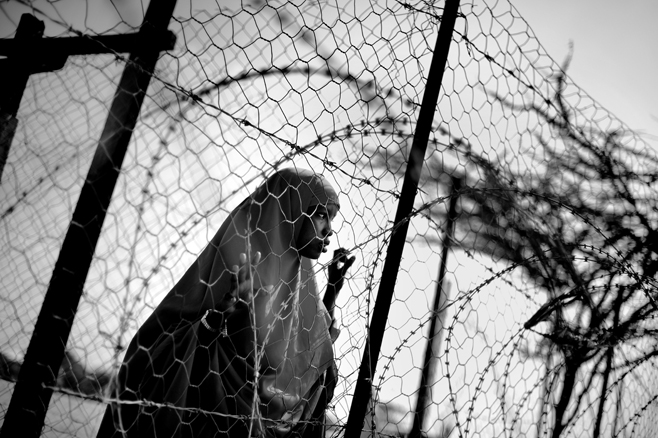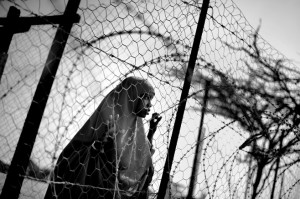There is an ongoing concern among human rights defenders and lawyers on The Security Laws (Amendment) Bill which is intended to empower the government and security agencies to fight terrorism. There are many glaring concerns on the Bill, like how Parliament want it rushed which have been captured here How new security law to fight terror infringes on rights.
Human Rights can be defined as ‘moral’ entitlements or claims that have legal recognition. In tweet in response to these concerns, Lawyer Ahmednassir Abdullahi remarked “Kenyans shouldn’t be alarmed or scared by the draconian security laws…The antidote/answer is the constitution, the courts and LSK.”
Kenyans shouldn’t be alarmed or scared by the draconian security laws…The antidote/answer is the constitution, the courts and LSK.
— Ahmednasir Abdullahi (@ahmednasirlaw) December 9, 2014
Ahmednassir is apt in instilling confidence in Kenyans that even if the Bill is passed, it will not hold water so long as it infringes on human rights provisions that the Constitution protects. A good starting point is Article 19(2) of the Constitution of Kenya, 2010 provides that
“the essential purpose of human rights is to preserve the dignity of the individuals and communities and to promote social justice and the realization of the potential of human beings.”
Elements of human rights shed light into the gravity of the matter. First, human rights belong to every human being by being human/ they do not depart and cannot be separated from the person. Secondly, they are universal. Thirdly, they are unchallengeable, absolute, immutable, incontrovertible, indisputable and undeniable. Fourthly, they belong to the human person at all times irrespective of circumstances such as imprisonment, conflict, poverty, illness, or any other compromised situations of the human person. They do not depart, and cannot be separated from the person. Lastly, the rights must not be mere moral aspirations, they should be practicable.
The state has a duty to Respect, Protect, Fulfill and Promote human rights at all times. However, the reality is that Rights are not absolute. They are subjected to certain recognized limitations and in certain circumstances to suspension as enshrined in (Article 24(1) of the Constitution. These limitations must however be justifiable in an open democratic system, reasonable and necessary and must not affect the general content of the right.
Despite Article 24, Article 25 affirms that certain rights cannot be limited at all costs. They are freedom from torture and cruel, inhumane or degrading treatment or punishment, freedom from slavery, right to a fair trial and right to order for appearance before a court and for the court to make a determination on lawful authority to detain the prisoner, otherwise known as habeas corpus.
The amendment Bill highlighted above seeks to amend 22 laws, quite massive and profound on fundamental rights and freedoms. The fight against terrorism has informed this Bill especially in light of recent attacks on Kenyans by suspects Alshabaab members.
The Bill is therefore considerably punitive, as it affects not just suspected terrorists but information purveyors like citizen journalists and media stations as it has clauses that will impede access to information and distribution of the same.
The International Commission of Jurists (ICJ) Kenya chapter correctly affirms that the fight against terrorism cannot be used as an excuse to derogate from fundamental human rights principles enshrined in the Constitution. The implementation of human rights does not promote terrorism. It is the violation of human rights that promotes terrorism.
A basic failure of this Bill is not even substantive but procedural. When introducing the Bill, Administration and National Security committee chairman Asman Kamama, the Bill’s sponsor, urged that the Bill be fast tracked and passed before Christmas. The basic failure of procedure is adequate public participation where the public must be informed, asked to give views in good time, before it is further discussed and passed. The tradition has been 14 days which this Bill violates but which will most likely not pass the test. However, after presenting the Bill, it took the speaker his intervention to rule that the public must have a say on it as it is of public importance and a hurried forum at County Hall was organized.
There is already precedence on inclusion of public input before a Bill is passed. This was the case in Kiambi County; Court Strikes Down Kiambu County Finance Act for Lack of Public Participation. Any Judge will easily use it.
What also gives hope to these efforts not seeing the light of day in terms of enforcement is the robust courts. The judiciary has asserted its independence and as Ahmednassir captured it, they will quash any law passed which infringes on fundamental rights guaranteed by the Constitution.
The Constitution is clear that any law that is inconsistent with the Constitution is null and void to the extent of its inconsistency. This Constitution is the supreme law and binds everyone (Article 2).
The meaning and importance of the Constitution and any judicial review on such matters that could arise is to challenge the enforceability of the laws. In the past, the courts have given stay orders on implementation of issues until they have been heard and determined. This gives promise to Kenyans, not just on this matter, but in the general fundamental rights and rights that they enjoy as guaranteed by the Constitution which recognizes that they merit because they are human beings and deserve dignity.
Kenya is not only unsafe because of terrorism; every neighborhood is unsafe due to unemployment and high cost of living. Tacking these insecurities requires social and economic capital in the drivers of insecurity. Seeking ways of providing basic needs to families like creating jobs are what will ensure people deviate from crime and engage in positive economic activities.
Kenyans have come a long way from days of detention without trial to forced disappearances and extrajudicial killings. The Constitution protects against this dark history. The enforcement of these rights has not only to be undertaken by the state, but all stakeholders who should remind government officers that no one is above the law. The media and civil society groups owe this to Kenyans.



